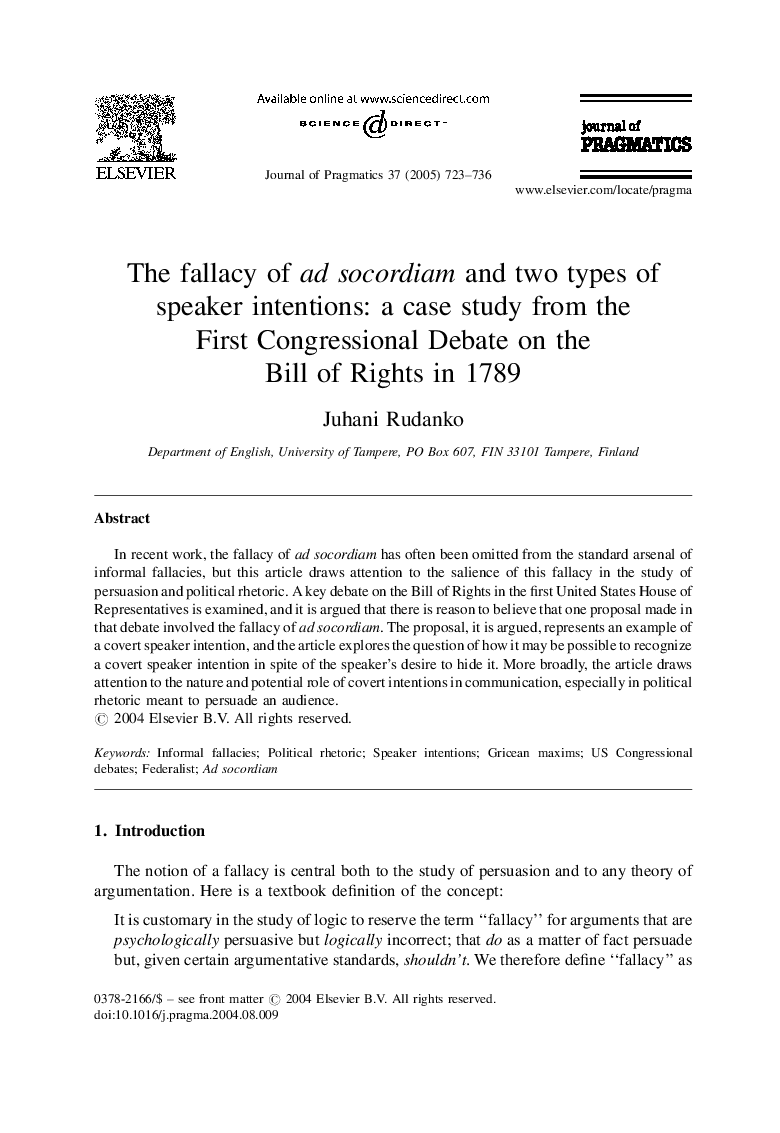| Article ID | Journal | Published Year | Pages | File Type |
|---|---|---|---|---|
| 10460255 | Journal of Pragmatics | 2005 | 14 Pages |
Abstract
In recent work, the fallacy of ad socordiam has often been omitted from the standard arsenal of informal fallacies, but this article draws attention to the salience of this fallacy in the study of persuasion and political rhetoric. A key debate on the Bill of Rights in the first United States House of Representatives is examined, and it is argued that there is reason to believe that one proposal made in that debate involved the fallacy of ad socordiam. The proposal, it is argued, represents an example of a covert speaker intention, and the article explores the question of how it may be possible to recognize a covert speaker intention in spite of the speaker's desire to hide it. More broadly, the article draws attention to the nature and potential role of covert intentions in communication, especially in political rhetoric meant to persuade an audience.
Keywords
Related Topics
Social Sciences and Humanities
Arts and Humanities
Language and Linguistics
Authors
Juhani Rudanko,
